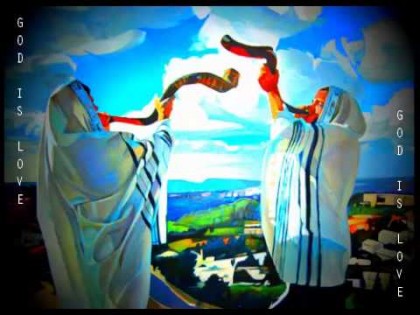The Overregulated Soul
Devra Torres | Apr 16, 2016 | 2 cmts
Our move from Michigan to Maryland has been a rude awakening to the perils of overregulation of the citizen. Reading Jacques Philippe's Interior Freedom has shown me the dangers of overregulation of the soul.
The morning after our move, we stepped out into the sunshine to find a fresh new parking ticket gracing our windshield. (Pulling in exhausted in the pitch dark a few hours earlier, we'd somehow failed to notice the small portion of the curb painted yellow.). As a parting shot, six months later, the City had us fork over $50 for permission to park a small moving truck (scarcely bulkier than the family van)  in front of our temporary dwelling for a few hours.
in front of our temporary dwelling for a few hours.
In between, we ran into 15-mph, photo-enforced speed limits, a law about getting a permit to host a yard sale in one's own yard, and a very threatening letter taped to our door regarding our placement of the Christmas tree on the right curb on the right day at the wrong hour.
Does this kind of thing enhance order and stability? Or does it foster resentment, making it harder for even the most well-intentioned to take law and authority seriously? Doesn't our attention get increasingly pulled away from what the rules are ostensibly for? Don't we end up concluding that the real intent was not safety and order at all, but the Man's malicious glee at catching culprits and profiting by their slip-ups?
Lest this post degenerate into a mere rant against our local City Hall, what I meant to say was this: a wrong understanding of order in the spiritual life can lead to the same sorts of unintended consequences.
As Jacques Philippe points out, the whole point of the Holy Spirit's movement in the Christian's life is to awaken the virtues of faith, hope and charity. That's why the whole of the Ten Commandments, the Law and the Prophets, and he 613 mitzvot can be summed up so neatly in the Sh'ma Yisrael and "Love thy neighbor as thyself."

But we are geniuses at finding excuses to get sidetracked.
Take the Ten Commandments. They were bestowed on us as a path to life now that we were no longer slaves. But sometimes we treat them as a handbook for slave behavior.
Novenas and optional devotions, sevenfold paths and castles, traditions of all manner of food and clothing--these open up a world of possibilities. Do we revel in the freedom of it all? Or do we manage to treat them as straitjackets and excuses for disapproving of people who don't have an affinity for our own favorites?
As Fr. Jacques puts it,
Treatises on spirituality speak of the stages of the spiritual life. They list three, seven, twelve, or whatever number the particular author prefers. There is much to be learned from these accounts, whether it is the seven mansions of the soul depicted by St. Teresa of Avila or the twelve degrees of humility of the Rule of St. Benedict.
But experience has taught me a different approach. I often say jokingly that the ladder of perfection has only one step: the step we take today. Without concerning ourselves about the past or the future, we can decide to believe today, place all our trust in God today, love God and neighbor today.
We imagine it's God and His law that are trying to micromanage us, when in we're the ones scheming to invent new forms of unnecessary constraint at every turn.
Do citizens need rules and regulations? Of course. Let's all drive on the right side of the road, and let's bow to more complicated rules, too, when they lead to order and safety and are promulgated by legitimate authority.
Do our souls benefit by the techniques of spiritual masters, by all kinds of traditions of clothing and devotions and feasts and fasts? Of course they do.
The trick, though, is to avoid reducing the spiritual life to a list of traffic regulations, and ourselves to distributors of tickets, to ourselves or everybody else.


Comments (2)
Patti
Apr 17, 2016 7:44pm
Dear Devra, my sister who I miss so much!
Great post. I have often had thoughts about this. Are we driving people to be anarchists (maybe terrorists in my case) because we are making life so complicated by each community trying to micro-manage everyone's life so that it fits our ideal. If we all lived the "golden rule" of trying to do unto others as we would have them do unto us, would there be enough freedom to enjoy each other's differences or quirks. It would certainly be worth something to try it out. Keep thinking and writing!
Patti
Devra Torres
Apr 21, 2016 2:47pm
Patti, I miss you!
Yes, it's not just a matter of, do we need lots of regulations or few regulations--sometimes things are complicated and not at all self-explanatory, and well-meaning people can go wrong even when they're sincerely trying to implement "do unto others." The problem is when the rules themselves become the focus, or, worse, when the ways in which other people are "doing it wrong" (and by implication, "I thank Thee, Lord, that I am not like so-and-so...") blots out the whole reason for having rules in the first place.